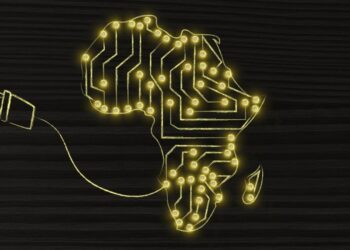Advancements in the digital domain are progressively molding people’s everyday life progressions, businesses, academic organizations, companies, and governmental associations. However, the hypothetical systems of administration that are being utilized concerning these have not progressed at a similar speed. To resolve this, the decentralized application of blockchain technology has emerged as one of the best technologies.
It is generally seen as a tool that can give answers to numerous concerning points like digital identity, ownership of assets and data, security, and, surprisingly, future decentralized decision-making. Decentralized blockchain is an outstanding technology that not only is used for financial purposes but is the main science behind cryptocurrencies.
In the blockchain, decentralization alludes to the transfer of supervision and decision-making from a centralized association (individual, corporation, or group of people) to a dispersed network. Decentralized networks endeavor to decrease the degree of trust that members should put in each other and dissuade their capacity to put forth authority or command over each other in a manner that corrupts the potency of the network.
How decentralization compares
Decentralization should be applied where it makes sense. Just because it’s a blockchain application doesn’t mean it needs to be 100% decentralized. The goal of any blockchain solution is to deliver what the users of that solution need, and this may or may not include certain levels of decentralization. To better understand decentralized networks, the table below breaks out how decentralized networks compare to the more common centralized and distributed networks.
| Centralized | Distributed | Decentralized | |
| Network/hardware resources | Maintained & controlled by single entity in a centralized location. | Spread across multiple data centers & geographies; owned by network provider. | Resources are owned & shared by network members; difficult to maintain since no one owns it. |
| Solution components | Maintained & controlled by central entity. | Maintained & controlled by solution provider. | Each member has exact same copy of distributed ledger. |
| Data | Maintained & controlled by central entity. | Typically owned & managed by customer. | Only added through group consensus. |
| Control | Controlled by central entity. | Typically, a shared responsibility between network provider, solution provider & customer. | No one owns the data & everyone owns the data. |
| Single Point of Failure | Yes | No | No |
| Fault tolerance | Low | High | Extremely high |
| Security | Maintained & controlled by central entity. | Typically, a shared responsibility between network provider, solution provider & customer. | Increases as # of network members increase. |
| Performance | Maintained & controlled by central entity. | Increases as network/hardware resources scale up and out. | Decreases as # of network members increase. |
| Example | ERP system | Cloud computing | Blockchain |
Each network architecture has its benefits and tradeoffs. For example, decentralized blockchain systems, unlike distributed systems, typically prioritize security over performance. So, when a blockchain network scales up or out, the network becomes more secure, but performance slows down because each member node must validate all data being added to the ledger. Adding members to a decentralized network can make it safer, but not necessarily faster.
Benefits of decentralized blockchain
Distributed ledger has shown to be incredibly beneficial in the commercial world and offers several important benefits. Here are a few of the most significant benefits of autonomous blockchain technology.
1. Preventing fraud
Since blockchain systems are open-source ledgers that record every commercial action, and the records are well distributed among the network of its users, it is relatively straightforward to determine whether or not fraud is occurring. Miners, who authenticate payments 24 hours a day, monitor, and ensure the confidentiality of public blockchains. At any predetermined hour, there are large numbers of miners authenticating blockchain operations across the world. On top of that, the record-keeping and mining both use cryptographic encryption that strengthened the network.
2. Facilitates a trustless setting
In a decentralized blockchain network, no one has to know or trust anyone else. Each member in the network has a copy of the exact same data in the form of a distributed ledger. If a member’s ledger is altered or corrupted in any way, it will be rejected by the majority of the members in the network.
3. Improves data reconciliation
Companies often exchange data with their partners. This data, in turn, is typically transformed and stored in each party’s data silos, only to resurface when it needs to be passed downstream. Each time the data is transformed, it opens up opportunities for data loss or incorrect data to enter the workstream. By having a decentralized data store, every entity has access to a real-time, shared view of the data.
4. Reduces points of weakness
Decentralization can reduce points of weakness in systems where there may be too much reliance on specific actors. These weak points could lead to systemic failures, including failure to provide promised services or inefficient service due to the exhaustion of resources, periodic outages, bottlenecks, lack of sufficient incentives for good service, or corruption.
5. Optimizes resource distribution
Decentralization can also help optimize the distribution of resources so that promised services are provided with better performance and consistency, as well as a reduced likelihood of catastrophic failure.
6. Freedom from government interference
Governments, banks, and central banks do not influence blockchain-based networks. This implies that administrations cannot interfere with them. Throughout time, state interference has resulted in the depreciation of several assets.
7. Transaction times are shorter
Transaction timings for blockchain-based bitcoins are frequently substantially faster than financial transaction timeframes. Some financial operations, such as financial transactions, might take days to complete. Operations on a cryptocurrency, on the other hand, typically take minutes.
As an example, international transactions take 2-3 business days in banks but for bitcoin, it takes less than 10 minutes. The premise because trades may be completed faster and with more precision using blockchain-based coinage can enhance innumerable consumers and businesses all over the world.
8. Improved financial performance
Decentralized blockchain technologies enable payments to be done directly between people with or without a third-party intermediary. This increases financial performance and decreases people’s reliance on traditional finance companies and organizations’ systems. This can help customers save a great deal of money on charges and other costs connected with someone using institutions. Many consumers who want to save money may find this aspect of distributed ledger technology highly tempting.
9. Effective value store
Digital gold is a term used to describe Bitcoin, which is based on the blockchain network. This is because it possesses many of the characteristics of gold.
- Bitcoin’s supply is limited like gold.
- It must be extracted and in both cases, the process is called mining.
- It is desired in a variety of nations.
- Bitcoin has a high value.
- Bitcoin investment can save one from inflation and shut down of stock market because it is a store of value.
Bitcoin, and therefore blockchain technology or system, could be a very appropriate method to hold wealth due to its features and also the reality that it is “virtual gold”.
Drawbacks of decentralized blockchain
Decentralized blockchain systems have massive benefits, but they also have certain drawbacks. Here’s a rundown and one of the most significant of these drawbacks.
1. Crime
Decentralized blockchain technologies and the cryptocurrency that rely on them are becoming popular financial products for cybercriminals due to their anonymity. People might use blockchain-based coins to buy illegal substances, blackmail people, or pay for crime.
2. Unpredictability
Many decentralized blockchain-based coins are quite volatile. Bitcoin’s value, for instance, can swing by 20% more than on a given day. This implies that authorities, investors, corporations, and other classes of people are debating to choose whether or not to embrace them, resulting in a good deal of volatility.
3. Storage problems
For someone who is not tech adept, storing blockchain-based cryptocurrency might be difficult. For those who are, secure storage is rather straightforward. In truth, it is rather simple to do by acquiring so-called “cold storage” wallets.
4. Difficult to coordinate
One of the biggest cons of decentralization is reaching a consensus. Since there are many members to consult, the decision-making can be a difficult task to complete. It means that sometimes the lack of coordination may stretch the decision-making.
5. External factors
A lot of times, external factors like trade unions, market movement, the government, and others, make it hard to achieve a decision through discussion. Such factors can manipulate the majority and make the decision-making biased.
6. Narrow product lines
For decentralization, the product lines in an organization need to be subsequently broad. This is important to ensure that decentralization helps in decision-making. Smaller organizations with narrow product lines and a lack of managerial level people at lower levels cannot benefit from decentralization.
7. Expensive
Now, if you ask every one of your employees to put extra effort into managing the company and be a part of the decision-making, you need to give them leverage as well. This means bringing decentralization can cost more to an organization than the centralized version. The same goes for the financial world, as the technology for decentralizing finances is costlier.
8. Inefficiency
It is inefficient to have several network users validating the same operations, since only one will receive the reward derived from this mining process. This process, and for the same reason of many users doing the same thing, also implies a huge waste of energy, not very environmentally friendly technology.
9. Private keys
Excessive security can also be an Achilles heel, in the case of private keys, as has been documented on many occasions, having lost them it becomes almost impossible to recover these keys, causing a problem, mainly, for all those holders of cryptographic values.
Conclusion
The decentralization in the blockchain is an information base that stores a library of resources and trades across a peer-to-peer network. The “resource” may not exclusively be cash or transactional data, yet additional data regarding ownership, agreements, products, and some other data. A blockchain doesn’t copy the worth that is transmitted as other peer-to-peer networks do. Whereas the technology offers many benefits, it also presents some drawbacks that cannot be overlooked.


































































































































































































